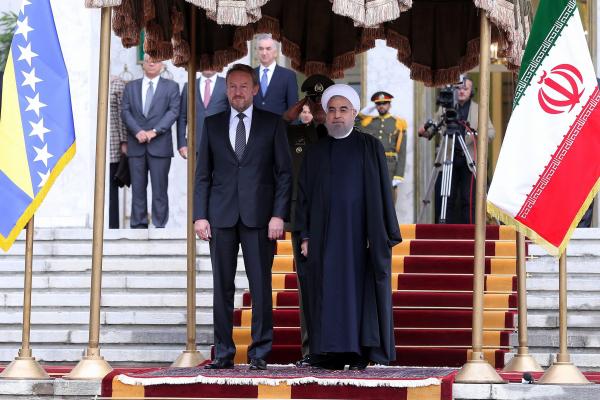Three ministers from Hassan Rouhani’s government have resigned as a result of extremists criticising them with regards to the conflict caused by Iran signing a nuclear agreement with the west and the government’s promise to start a new phase of opening up. Since Ayatollah Khomeini’s regime was established, Iran has been economically and socially closed off from the rest of the world and this has continued to the present day. After the agreement, the government gave young people reason to hope that Iran would open up and showed remarkable flexibility towards freedom of expression, allowed the use of social media networks, reduced its control over the internet, allowed women to participate in sports activities in public and attend concerts.
Despite what has been said about the Supreme Leader’s approval of the government’s decisions, a struggle for influence broke out between two teams within the regime; religious extremists on the one hand and the government led by Rouhani on the other. The Foreign Minister Mohammad Javad Zarif has been subjected to a torrent of insults because of his promises to open up Iran to the world.
Not only do all the criticism and threats that caused the resignation of the Ministers of Education, Culture and Sports reflect the intellectual differences on opening up, but they also show that extremist forces use religious groups in the struggle for power.
The Revolutionary Guards and the religious forces that support it were surprised when two major banks refused to provide banking services to a group called Khatam Al-Anbiya which is linked to the Revolutionary Guards. The banks refused because of a pledge that the government made to international organisations to implement measures as part of the fight against money laundering. Ceasing to deal with banned internal organisations is an international condition for and the price of opening up. This has angered the most dangerous element of the regime, the Revolutionary Guard, which funds huge military activities outside of Iran through a series of suspicious banking operations.
The preacher Ahmad Jannati accused the Rouhani government of “wanting to provide enemies with our financial and bank details in the name of combatting money laundering and funding terrorism”. A government spokesman replied by saying that this subject should not be discussed in newspapers or from the pulpits of mosques. This means that the intense internal pressure on Rouhani’s government is not caused by the opening up of society, international women’s sports teams visiting and playing with Iranian teams and both women and women attending concerts. Rather, it seems that they are excuses used to put pressure on Rouhani’s government to end its international commitments.
There is a power struggle between two groups in Iran; Rouhani’s group that is described as representing religious liberalism, and radical clerics in the Supreme Leader’s court. The Supreme Leader does not seem to have made his decision yet as he wants to benefit from the nuclear deal with the west to break the embargo by buying 400 American and European aircrafts and procuring oil production technology from the United States. At the same time, he wants to control Iran, prevent opening up and protect his security and religious institutions from international supervision.
It is clear that the Leader is watching and waiting for what western trade with Iran will lead to, especially after the US elections which the Leader described as being “between bad and worse”. If the next administration in Washington fulfils the promises of the current administration, it is likely that Iran will resort to mixed solutions with few changes. It will curtail opening up and continue its illegal military and financial operations in the region.
However, if it turns out that the elected US administration will insist on testing Iran’s promises and cooperating with it according to whether it implements its promises, then the Leader may bury the agreement. It is also likely that he will not extend the presidency of Rouhani which ends in less than ten months.
